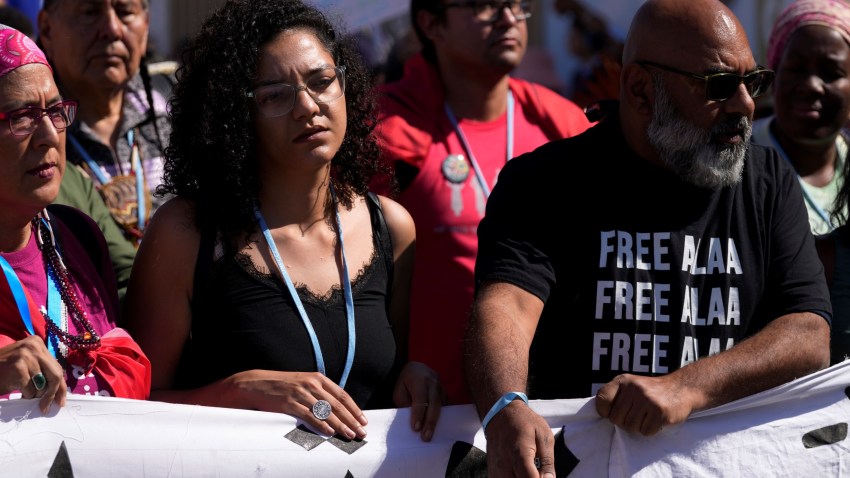The United Nations COP27 Climate Change Conference has entered its second and final week. But the agenda for the remainder of the conference, which includes formal negotiations to steer the world toward cutting carbon emissions and scaling up financing for developing countries ravaged by climate change, threatens to be overshadowed by concerns over Egypt’s poor human rights record.
In the runup to COP27, the restrictions Egyptian authorities placed on the participation of civil society groups at the summit drew international attention and were criticized by many as needlessly punitive. Some of the restrictions were formal, including delays in processing visas and extensive paperwork requirements, as well as requests by local authorities for personal data from civil society participants seeking accreditation. Egyptian authorities also required all users of the official COP27 app to submit their personal data and enable location-tracking, which raised concerns among civil society and rights groups that the app was being used by the Egyptian state for surveillance.
Egyptian security forces have also stepped up security measures in Sharm el-Sheikh, where the summit is taking place, as well as in Cairo, while barring protests across the country during the conference. They also created a designated area in Sharm el-Sheikh for protesters, although the site is far from the conference venue and access to it requires prior registration with Egyptian authorities.

